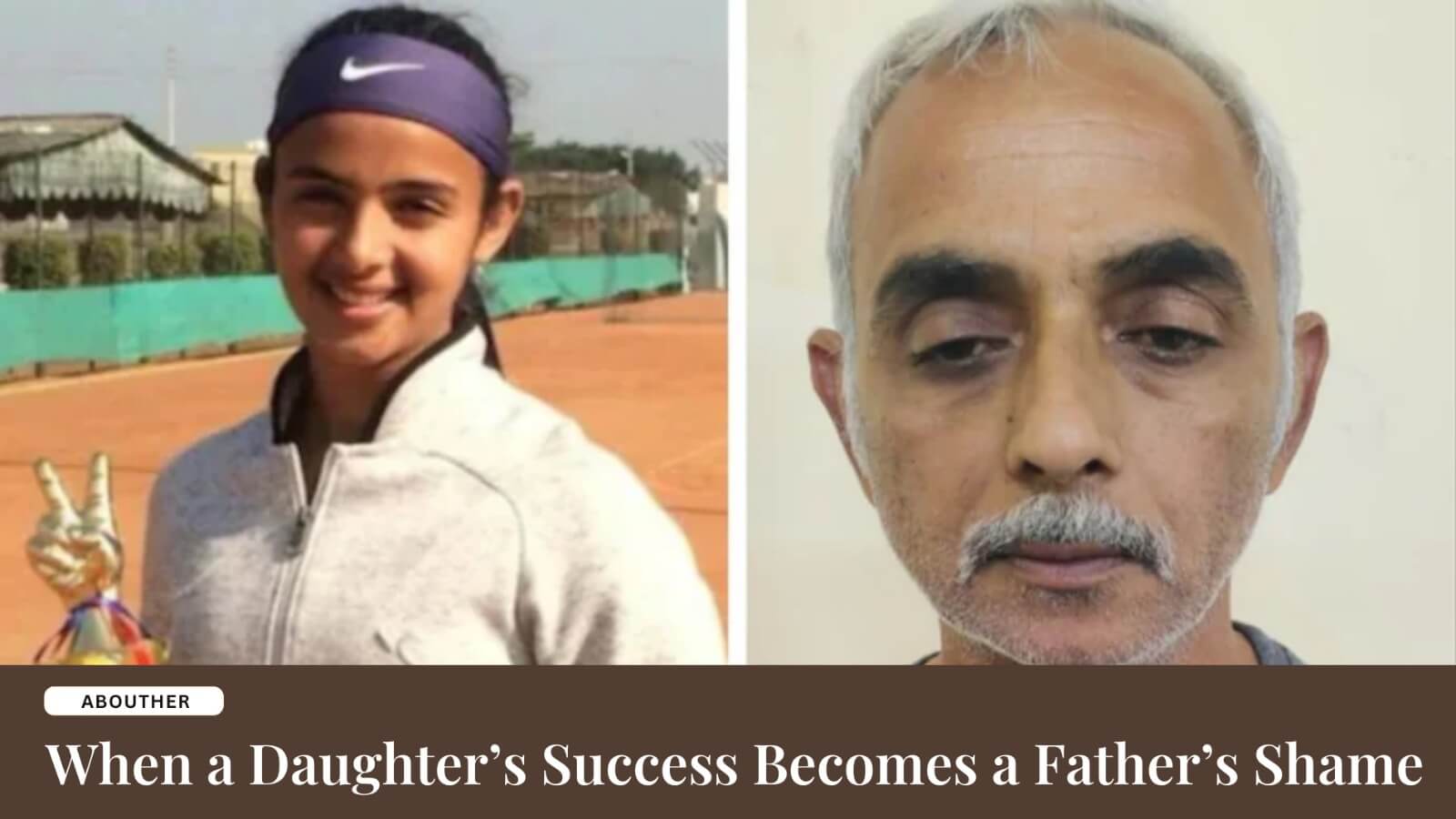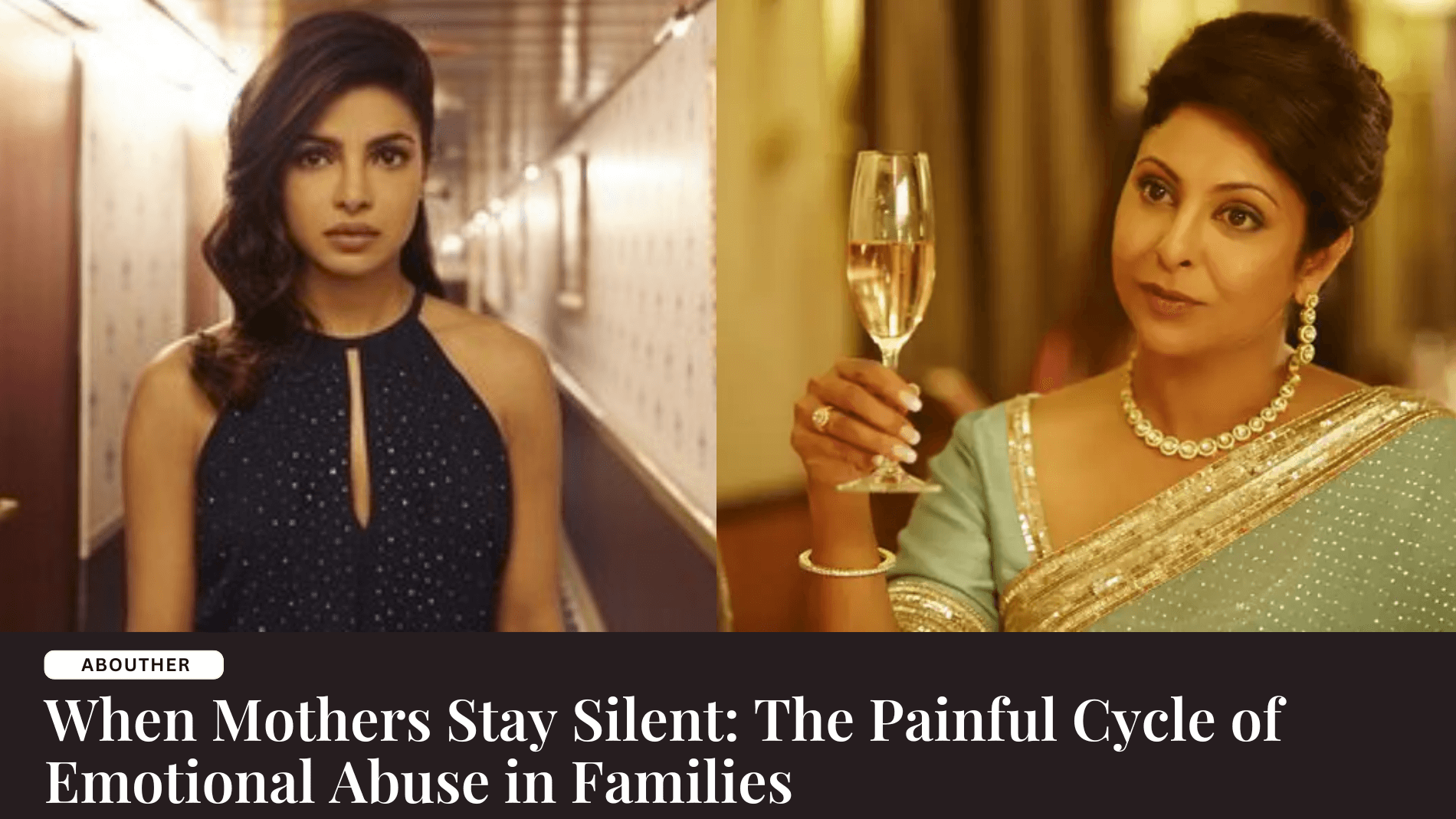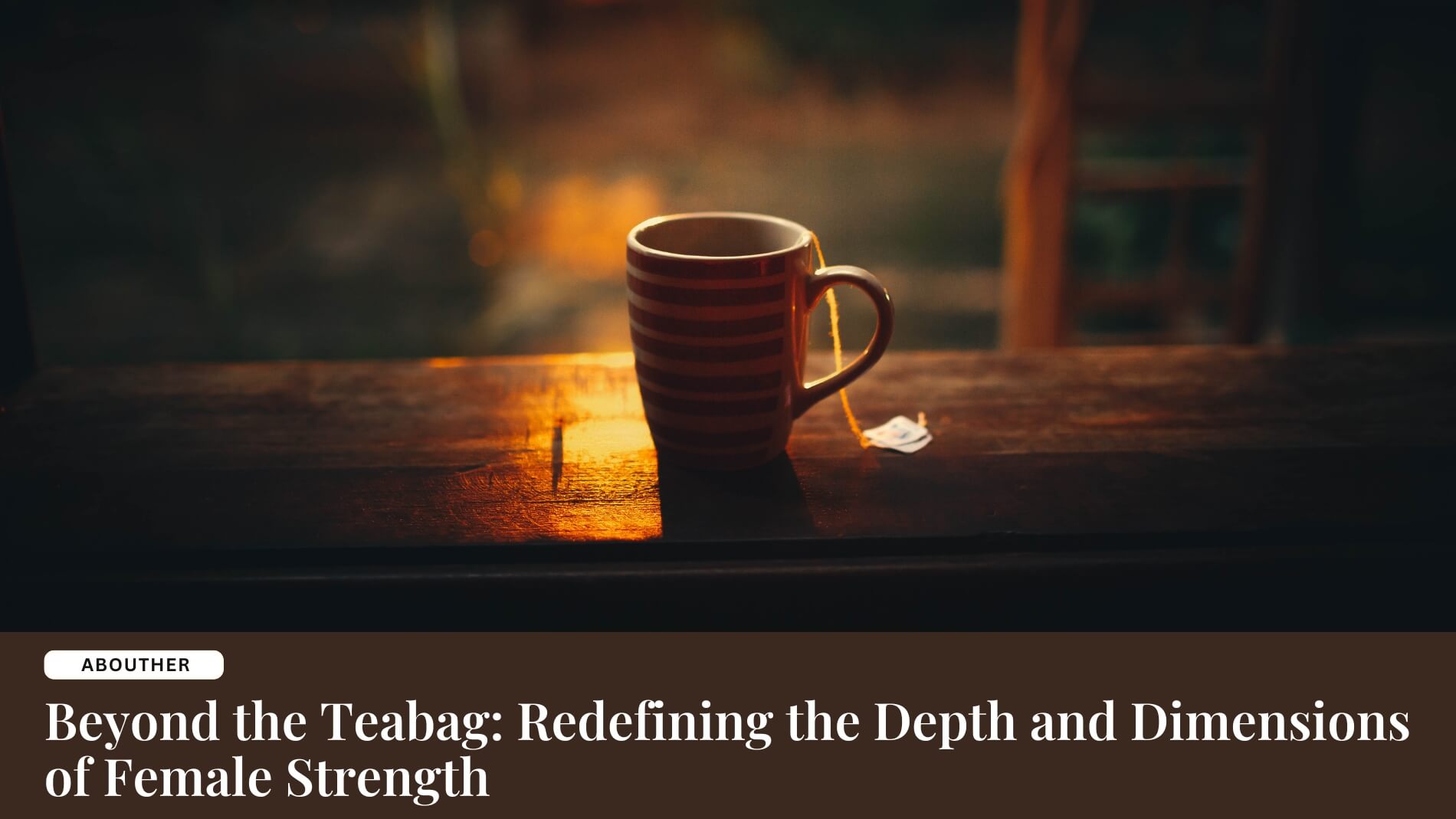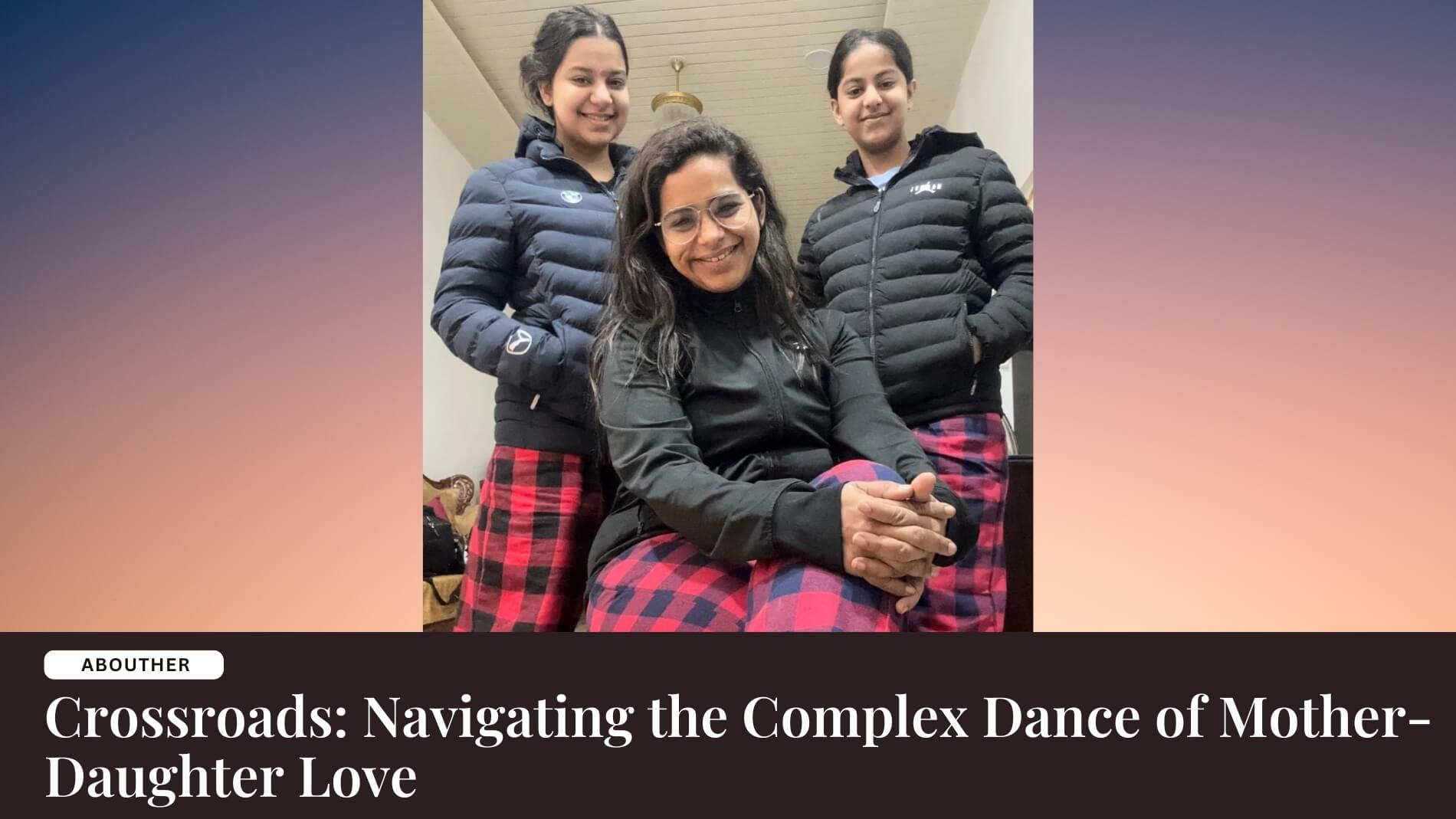When a Daughter’s Success Becomes a Father’s Shame
What Radhika Yadav’s Tragic Death Tells Us About Patriarchy — and Why We Can’t Stay Silent
– By AboutHer Editorial Team
“Radhika didn’t kill his self-worth. Patriarchy did.”
— A friend, remembering the tennis star who never got to play her biggest match
A Life Interrupted
On July 10, 2025, something unimaginable, something unacceptable happened inside a modest apartment in Gurugram.
Radhika Yadav, a 25-year-old national-level tennis player, beloved coach, and founder of her tennis academy, was shot dead. Not by a stranger. Not in a public space. But by her father,inside the very home she helped sustain.
The story sent shockwaves across the country. A daughter, silenced by the very man who should have been her first champion, her cheerleader, her safe haven. But as headlines faded, so did the conversation. The deeper story, however, demands to be heard.
Because what happened to Radhika wasn’t a one-off. It was patriarchy in action—controlling, fragile, and violent.
The Player, The Coach, The Daughter
Radhika wasn’t just a rising athlete. She had played on the ITF circuit, built her own coaching academy in Gurugram, and mentored dozens of children. She had dreams, drive, and the discipline that defines great sportspersons.
In one of her early interviews, she said:
“Tennis has taught me resilience. I want young girls to believe that their place is wherever they want it to be—on court, in boardrooms, anywhere.”
She was blazing a trail not just for herself, but for others. But even as she grew into her power, her world at home was shrinking.
Behind Closed Doors
Friends recall that Radhika’s life was closely monitored. Her phone was checked. Her outfits judged. Her interactions policed. The environment, instead of supporting her success, grew increasingly hostile.
Radhika had taken on the role of breadwinner. Her father, no longer employed, depended on her earnings. Rather than inspiring pride, her independence became a source of shame.
Whispers in the neighbourhood — “Look at him, living off his daughter” — stung deeper than they should. And in a culture that equates masculinity with control and income, those whispers turned deadly.
When Masculinity is Measured in Control
India continues to be a place where women’s ambition is often met with resistance, and sometimes, punishment.
And when the patriarchal order is disrupted, particularly within families, it’s not uncommon for men to feel their identity under threat.
Also Read: The Stranger Among Us- Unmasking a Predator
This was not an isolated act of madness. This was the culmination of long-standing entitlement, internalised misogyny, and societal pressure. Radhika’s father, unable to cope with the inversion of traditional roles, allegedly first considered suicide, then chose instead to end his daughter’s life.
The Culture That Enables This
We must move beyond individual blame to examine the system that enables such tragedies.
We live in a society where:
- A daughter’s success is seen as disobedience.
- Control is mistaken for protection.
- A man’s value is still tied to dominance, not dignity.
- Women are celebrated for achievement, only until they cross the invisible line of “too much.”
And the statistics back it up.
🔴 According to NCRB data, over 50% of female homicide victims in India are killed by family members.
Many of these cases are disguised as “domestic disputes” but are, in fact, patriarchal backlash.
The Questions We Must Ask
Radhika’s death should not simply evoke grief—it should spark reckoning.
– How are we raising our sons?
Are they learning that partnership is strength, not threat?
-What are we teaching our daughters?
That they must succeed—but not too loudly, not too independently?
– How are we defining respect in families?
Does it come from support or submission?
– And do we intervene early enough when women show signs of living under silent control?
Or do we wait until it’s too late?
The Legacy She Deserved
Radhika Yadav should be remembered for her backhand, not for the backstabbing betrayal of her own home.
She should have been in the news for mentoring national champions, not for being failed by the very society she tried to rise above.
Her life wasn’t taken in a moment. It was eroded over time, by expectations she never signed up for, by a father who saw her independence as rebellion, and by a society that still punishes women who dare to fly.
Let Her Name Echo Beyond Headlines
Radhika is gone. But the conditions that killed her still exist.
Let her name be a reminder. A wake-up call. A promise to do better.
Because unless we challenge this culture, of control disguised as love, of masculinity rooted in dominance, of success being seen as shame, we will keep losing more women like her.
“Not one more Radhika.”
Also Read: Behind Closed Doors- An Anomaly of Silent Suffering
Have something to say?
If you’ve ever felt your ambition was too much for your environment to handle, or seen someone shrink for the sake of family honour, your story matters.
Write to us at web.abouther@gmail.com or join the conversation @aboutherbysangeetarelan.
Let’s turn grief into change. Let’s say it together: Enough.
Share This On Social
![Sangeeta-Relan-AH-525×410[1]](https://slategray-flamingo-696901.hostingersite.com/wp-content/uploads/2024/06/Sangeeta-Relan-AH-525x4101-1.jpeg)
I’m Sangeeta Relan—an educator, writer, podcaster, researcher, and the founder of AboutHer. With over 30 years of experience teaching at the university level, I’ve also journeyed through life as a corporate wife, a mother, and now, a storyteller.
Recent Posts

















